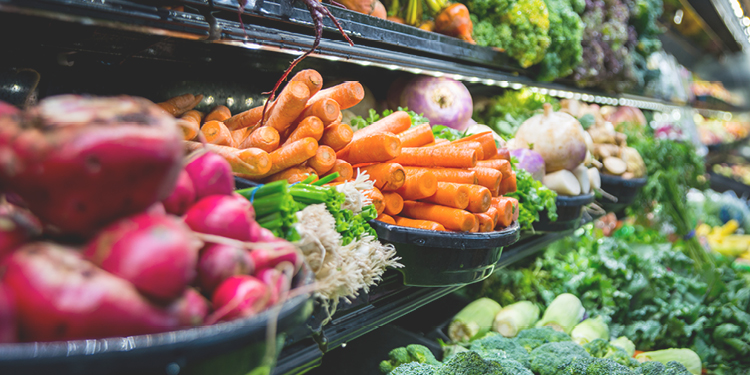


Sign-up for {N}power to get exclusive discounts, newsletters, members-only features, and more!
 Denver - Design District - Alameda and Broadway
Denver - Design District - Alameda and Broadway
368 S Broadway
Denver, CO 80209
United States
 Preferred Store:
Select a Store
Preferred Store:
Select a Store


It’s no secret in the grocery industry that the organic sector has experienced phenomenal growth over the last decade. This growth has been mirrored by an increasing amount of scientific evidence emphasizing the benefits of organic food and organic agriculture. Recent large scale meta-analyses that carefully weighed all the data available from previously published studies have definitively shown that organic produce is higher in antioxidants and much less likely to be contaminated with harmful pesticides than conventional produce. Here at Natural Grocers we have always sold only 100% organic produce because we truly believe it’s a healthier option for our customers and is produced in a fashion that is regenerative rather than damaging.
In order to better understand the values that drive our customers to shop for organic produce, we asked them to choose the three biggest reasons why they buy organic.
More than 90% of the respondents said that the main reason they buy organic “is to avoid pesticides.” This reasoning is backed by solid scientific evidence, as one study found that 94% of people in the United States have detectable levels of pesticide breakdown products in their urine. Conversely, studies focused on the effect of eating organic have shown that consuming a diet that contains only 80% organic ingredients for just one week reduces the pesticide breakdown products in subjects’ bodies by 96%.Given these examples, it’s no wonder that avoiding pesticides is a primary reason consumers choose to eat organic.
The next most common reason—chosen by 70% of survey respondents—to buy organic is to avoid genetically modified organisms (GMOs). As shocking as it sounds, GMOs are pervasive in our food supply, and produce is no exception. Currently, genetically-modified (GM) summer squash is grown in the United States and sold as fresh produce in both the United States and Canada. A small amount of sweet corn sold in grocery stores is also GM, meaning that the delicious sweet corn you throw on the grill could be a GMO—unless it’s organic. Other types of GM produce that have been approved to be sold in the United States include potatoes and apples. Buying organic is a great way to be 100% sure that your produce is non-GMO because GMOs are never allowed in organic production.
The third most common reason Natural Grocers customers choose organic produce is because they believe it is a more nutritious option to feed their families. And they are right—side-by-side comparisons of conventional tomatoes and organic tomatoes have shown that organic tomatoes have 20% higher levels of lycopene and 30% higher levels of vitamin C.Other studies have shown similar results when comparing organic and conventional fruits and vegetables. This is likely because many of the phytonutrients in fruits and vegetables that are so good for human health are naturally produced by plants to discourage pests from eating them. When plants are sprayed with pesticides, innate production of these beneficial phytonutrients is reduced, resulting in a less nutritious product, while organic crops are forced to rely on their own defenses and produce more phytonutrients to deter pests. And it’s not just about what organic produce has more of, it’s also what they have less of—data shows that organic produce has 48% lower levels of cadmium, a harmful heavy metal, that makes its way into conventional soils through contaminated synthetic fertilizers.
As you can see, there are some pretty significant reasons why consumers choose to buy organic produce. There are other reasons to consider, too. Organic agriculture is known to regenerate ecosystems and the soil, while conventional agriculture strips the environment, destroying our natural resources, and requires constant chemical inputs. There are also numerous hidden costs of conventional agriculture that burden society and decrease quality of life. On the other hand, a recent study conducted by a Penn State agricultural economist found that communities with high levels of organic agricultural activity are more successful economically. So no matter what your reason is for shopping organic, you should feel good about your purchase and know that you are voting with your dollar for a type of agriculture that benefits the environment, the economy, and human health.



Sign-up for {N}power to get exclusive discounts, newsletters, members-only features, and more!
